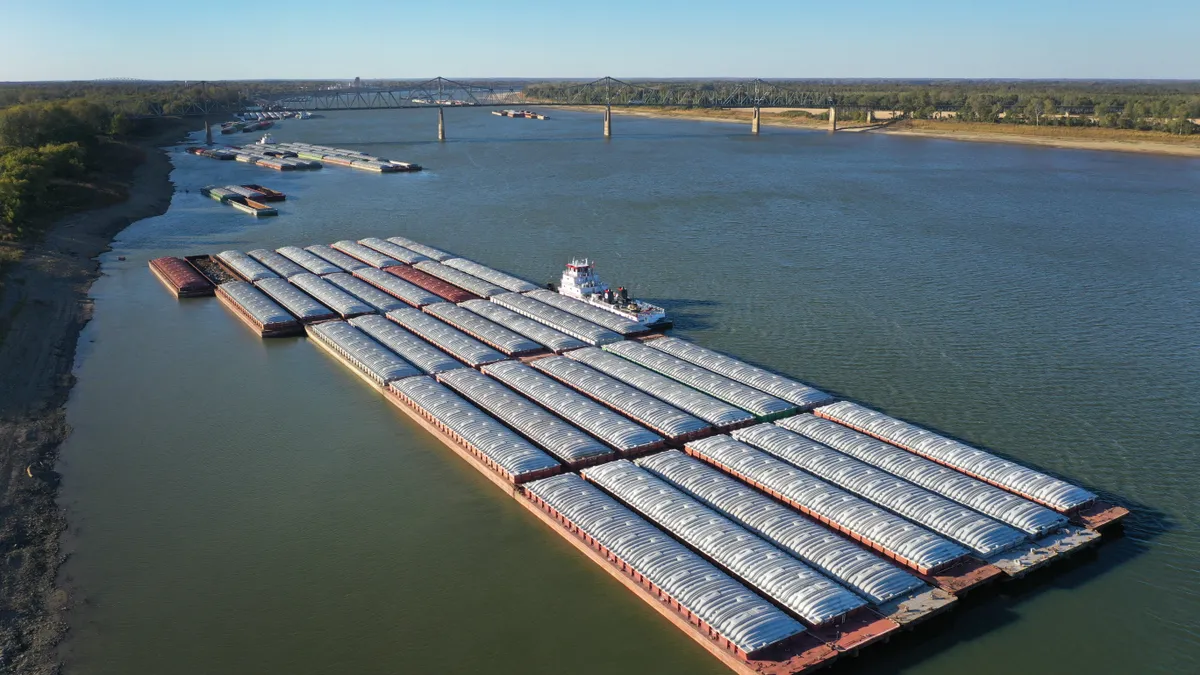Dive Brief:
- Reduced water levels on the Mississippi River are pushing up barge shipment rates and raising the potential for supply chain delays just as the corn and soybean harvest seasons get underway.
- Spot rates at St. Louis hit $23.34 per ton on Aug. 29, 49% higher than the prior week and 85% above the three-year average, according to a report from the U.S. Department of Agriculture.
- Increasingly stringent restrictions on barge shipments since June have limited the amount of goods that can be transported. Unless the situation improves, tight barge supply could “become especially problematic as the corn and soybean harvests progress,” according to the USDA.
Dive Insight:
Conditions on the Mississippi River are near what they were last fall, when low water levels brought traffic to a standstill and left barges mired in mud and sand.
Water levels at St. Louis were -3.05 feet as of Sept. 5, compared to a low of -3.62 feet in December 2022. Levels have plummeted more than 20 feet since May, data from the U.S. Geological Survey shows. With little precipitation in the forecast, Mississippi water levels are likely to drop further, according to the USDA.
Low water levels have pushed the U.S. Coast Guard and barge companies to restrict the amount of grain that can be loaded, so boats can remain light enough to traverse the river. American Commercial Barge Line implemented draft restrictions and limited tow size, noting delays of 24 to 48 hours for shipments moving through the Lower Mississippi River.
Delays on the Mississippi last year, which coincided with U.S. corn and soybean harvests, raised barge rates as much as 400% above average last October, according to the Bureau of Transportation Statistics.
The higher rates pushed up prices for commodities, hurting U.S. exporters. The delivery price of soybeans, for example, rose by about 24% during the height of supply chain delays, BTS calculated, “placing U.S. producers at a cost disadvantage compared to those in Brazil and other competitors.”
Beyond exports, a disruption to barge shipments can delay upbound tows moving fertilizer and cement for spring planting. Less upbound tows means less supply of barges for future downbound trips, BTS said.











